|
|
|
| |
| |
|
AIUK South Asia APRIL 2021
|
 |
|
|
|
|
|
|
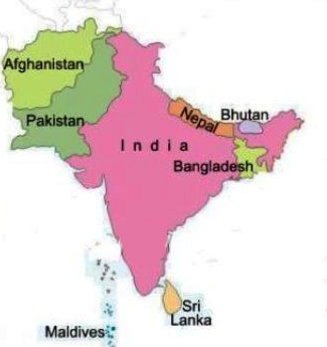
| South Asia Coordinator Team You have been sent this email because you or your local group opted in to receive Actions, Campaigns, and Updates on South Asia. Please see the footer for details of how to opt-out.
Please let us know if you have taken any actions or need further information. We can send this newsletter in pdf form.
Please see the two important actions.
The orange boxes are links to articles, actions and more details.
Thank you.
Jerry, Cherry, Nigina, Ayesha & Saania
|
| |
|
|
 | Saania Munawar, Student and Youth support CC in the South Asia Team I am a second year undergraduate student, pursuing Politics and International Relations at the University of Hertfordshire. I came as a transfer student from Ritsumeikan Asia Pacific University, Japan. On arriving in the United Kingdom, I volunteered for the Labour Party in the General Elections of 2019. With the onset of COVID, I have completed around 1400 hours volunteering with the NHS the Royal Voluntary Service. I was also a freelance editor of an international relations journal, Diplomacy and Beyond Plus until February 2021. I was chosen as the Youth Officer for the Welwyn Hatfield Labour Party in December 2020.
South Asia is a hub of complex socio-economic issues and issues ranging from wage theft, climate migration, forced labour, discrimination of religious minorities ,
refugee crisis. The governments have banned civil organisations working for human rights, defying peaceful protests against corruption and breakdown of a democratic system is an everyday issue. From the continuing refugee crisis in Bangladesh to the criminalisation of the LGBTQ rights in Pakistan, the growing friction between the US armed forces and the Taliban in Afghanistan and the unending protests since the last two years in Delhi.
My aim is to address the issues of human rights, plan and organise ways in which more youth can be involved. One of my key areas of focus would be to spread the outreach of Amnesty and awareness of South Asia human rights to schools and universities. This will be done by creating student led groups in schools, forming a base for the youth involvement in Amnesty at a larger scale. The aim is to provide Amnesty as a platform to voice the concerns of
the youth. Another focus would be on the BAME community as they are less aware about their rights in the United Kingdom. This would also be an opportunity to meet the gap in representation of the BAME students at The Amnesty Student Action Network (STAN). Last, I hope to identify and learn about the key issues and concerns in the South Asian region by working closely with the country coordinator team. I have realised that my goal probably is not to live forever but to create something that will.
|
| |
|
|
AIUK South Asia CCs on the Radio
"The Amnesty Sessions" Amnesty International Country Coordinators will be in conversation with Radio Free Matlock’s world music DJ Su-ki exploring the Human Rights issues of their region through music and conversation. Five interviews over five weeks, each Saturday at noon starting April 17th April, follow the link for more details www.radiofreematlock.co.uk.
Nigina will be talking about Afghanistan on Saturday 17th and Ayesha will be talking on Pakistan on 24th April.

|
| |
|
|
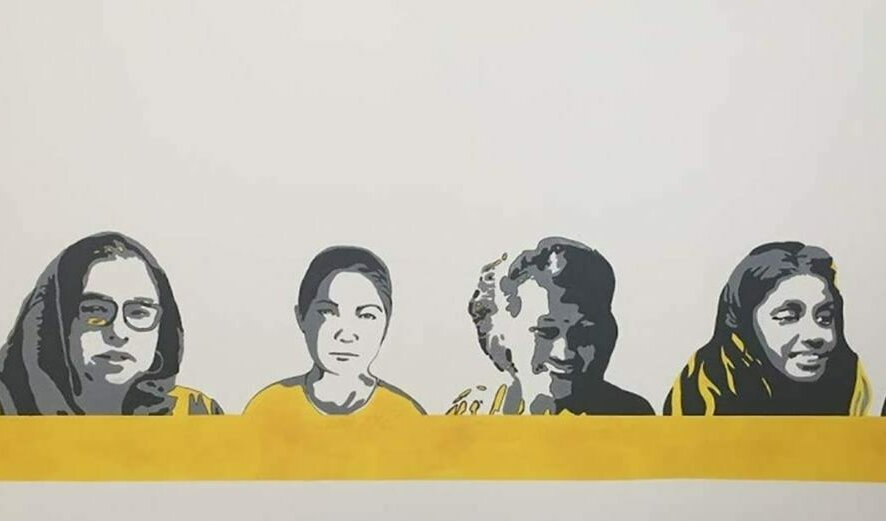
| Women‘s Day tribute to women‘s response to Covid Featuring women from Afghanistan, India, Nepal, Pakistan, Bangladesh, Maldives and Sri Lanka.

|
| |
|
|
|
|
 | Idris Khattak denied civilian court trial Please write to Pakistani Prime Minister Imran Khan to disclose Idris‘ whereabouts, allow him to be tried by a civilian court, and to be given regular access to his lawyer and family. Share this action on social media using the hashtag #WhereIsIdrisKhattak?

|
| |
|
|
|
|
 | The Joint Commission to protect Human rights defenders reality or exists in name only? We ask for the Afghan authorities to urgently deliver on their pledge to establish a functional body dedicated to the protection of human rights defenders. Spike in violent attacks on human rights defenders continue to claim lives and further delay in the establishment of a functioning mechanism would continue to result in (HRDs) faced with intimidation, harassment, threats, violence, and targeted killings.
|
| |
|
|
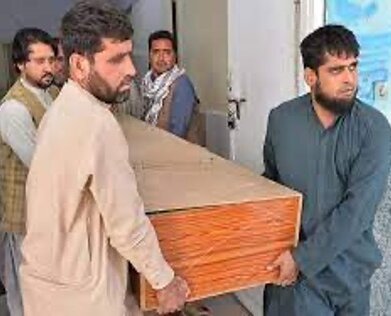 | Gunmen killed three Afghan women involved in a nationwide polio immunisation programme. The three polio vaccination workers, Basira, Samina and Negina, were shot around the same time but at two separate locations in Jalalabad. Jalalabad city has seen numerous attacks on women in recent months. The Taliban movement denies involvement just as they have in the previous killings since the start of intra-Afghan peace talks.
Samira Hamidi, Amnesty International's Deputy Regional Director for South Asia said: "This despicable and cowardly act has taken the lives of three women who were dedicating themselves to protecting the health of Afghan children." This outragous attack comes weeks after three women journalists were shot dead in the same city and, to avoid further damage to the work space of ordinary Afghans the despicable killing of female polio vaccine workers
must be investigated.
|
| |
|
|
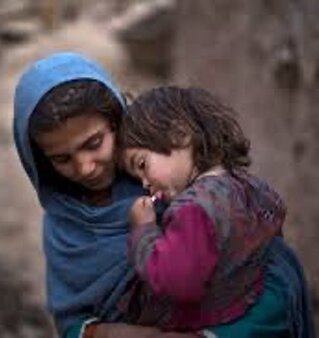 | “We survived the virus, but may not survive the hunger”: The impact of Covid-19 on Afghanistan‘s internally displaced has been severe. This is because, Afghanistan‘s four million of internally displaced people (IDPs) were already living in dire conditions when the COVID-19 pandemic hit globally, and the overcrowded IDPs camps were soon identified as places that demands urgent action by the authorities. With limited resources available, and considering the large number of people in camps, adequate help never arrived. But the lockdowns and other COVID-19 regulations meant that finding livelihoods more difficult, creating food insecurities within the camps, in addition to lack of water, sanitation and healthcare. This Campaign Digest discusses how the IDPs in Afghanistan are struggling with lack of information, access to PCR
tests and facilities to quarantine.
|
| |
|
|
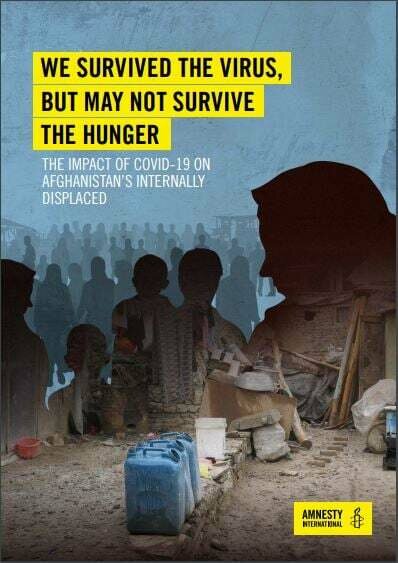
| “How could we keep social distancing if all 8 people are living in one room which is made of mud, pole and plastic sheets with a very small light and no ventilation? How could we wash our hands for 20 seconds if we can‘t find water to drink and buying each bottle of 25 litres of water for 15 Afghani? How could we quarantine someone with the signs of
coronavirus if we only have one room? How we could get tested if we do not have the money to travel to the hospitals where they would perform free coronavirus tests?”
An IDP man who lives in Chaman-e Babrak camp in urban Kabul

|
| |
|
|
|
|
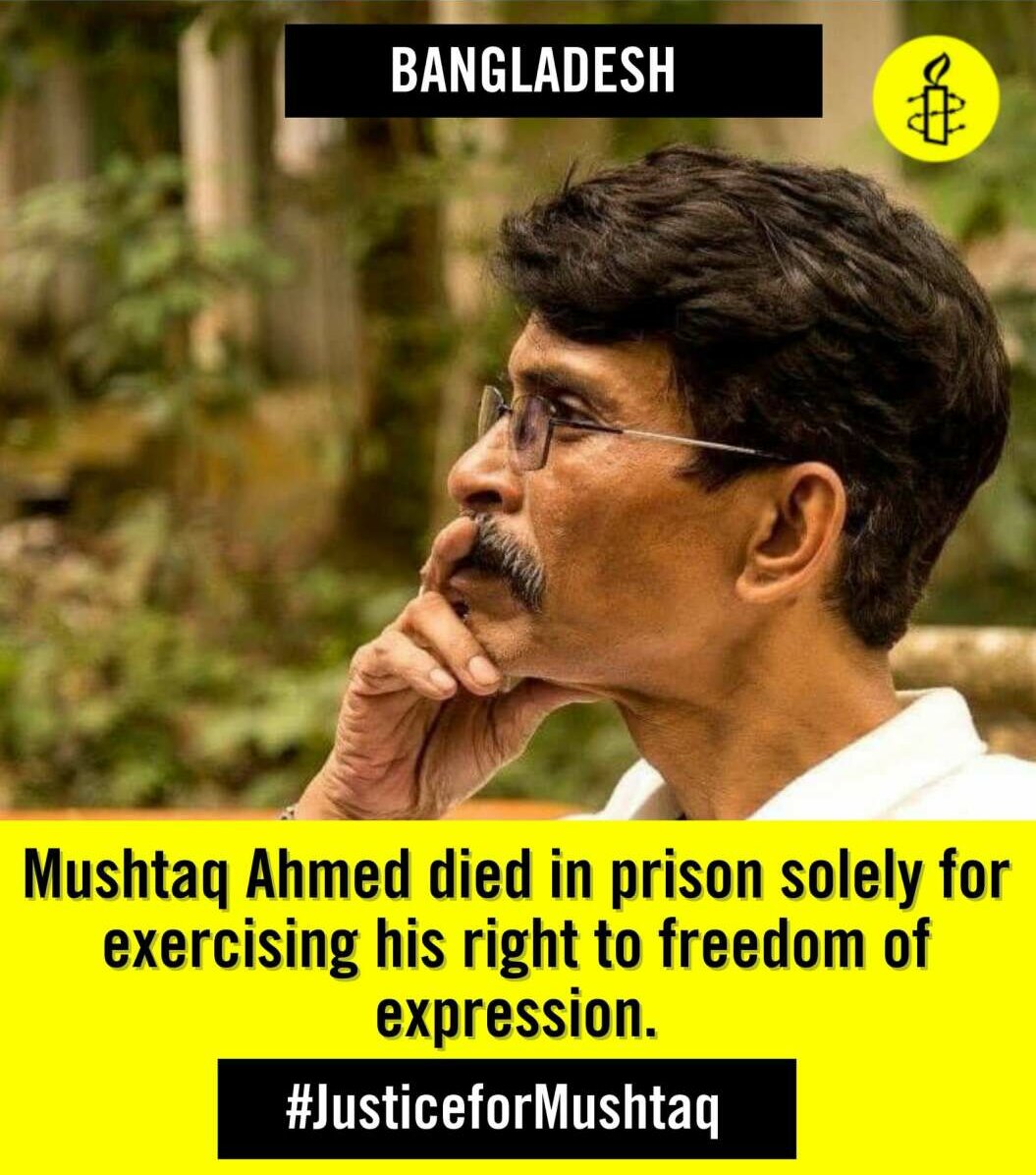
| Cartoonist Tortured, Writer Dies In Jail: Action Cartoonist Ahmed Kabir Kishore and writer Mushtaq Ahmed were detained in May 2020 for posting on Facebook satirical cartoons and comments critical of the Bangladeshi government‘s response to the pandemic. Denied bail six times, Mushtaq Ahmed died in prison on 25 February 2021. Released on bail, a week after Mushtaq‘s death, Ahmed Kabir Kishore has suffered injuries allegedly caused by incidents of torture while in custody. Charged under Bangladesh‘s draconian Digital Security Act, Ahmed Kabir Kishore and nine others in the same case could face up to 10 years in prison solely for peacefully exercising their right to freedom of expression, if convicted.
Please see the Urgent Action

|
| |
|
|
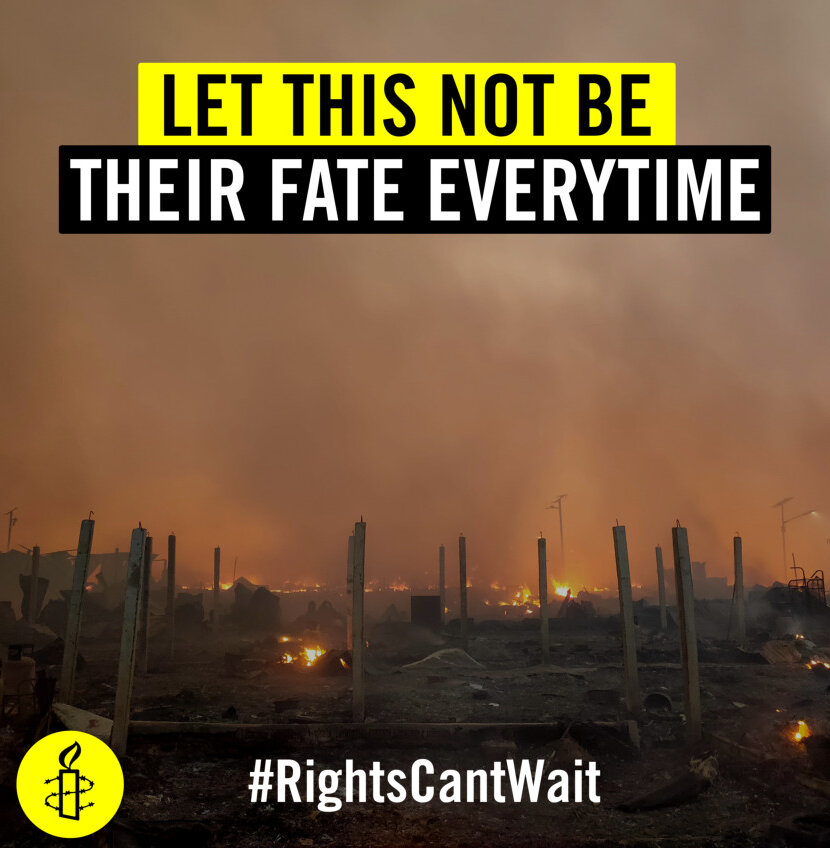
| Massive fire at Refugee camp in Bangladesh kills at least 15 people A devastating fire swept across several camps in the refugee settlements in Bangladesh, killed at least 15, injured hundreds and displaced nearly 50,000 refugees. The fire also burnt to ashes 10,000 shelters and major healthcare facilities among others. Barbed-wire fences inside the camps obstructed movement of refugees and humanitarian workers.
After the fire, they are moving to neighbouring camps that are already cramped. Children have been spending days and nights under the open sky. Rohingya refugees make life decisions out of compulsion rather than choice. That includes relocation to Bhashan Char, a remote silt island.
|
| |
|
|
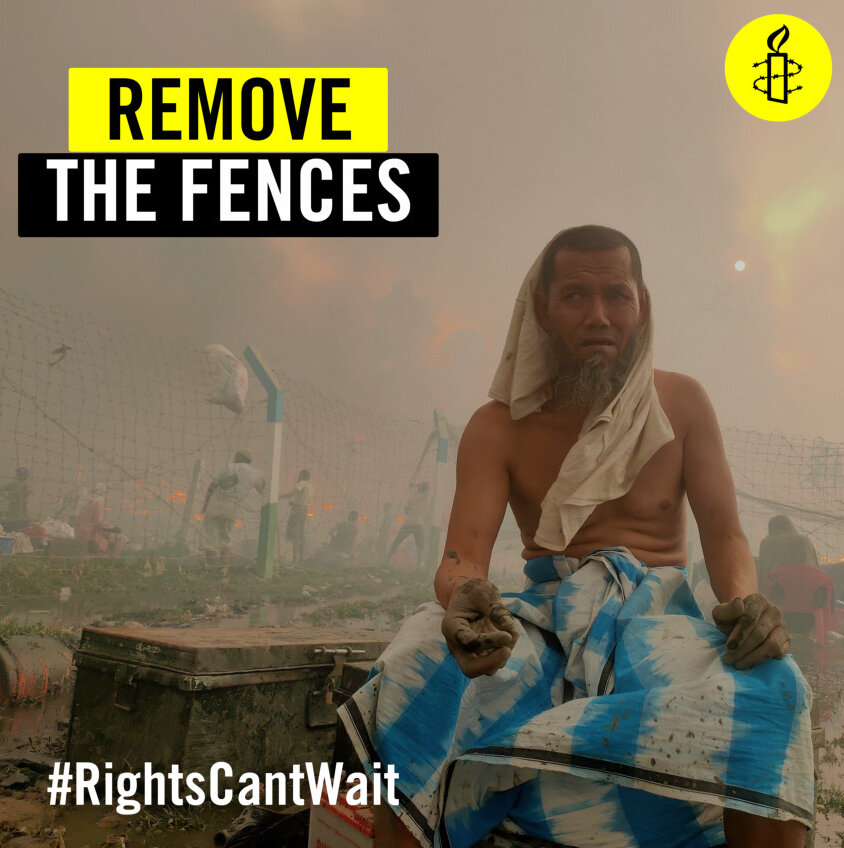
| This is a time your actions and solidarity can make difference to their lives, to put pressure on governments (not applicable in the UK) and the Bangladeshi authorities to protect the rights of the Rohingya refugees in distress.
The barbed wire fence in the camps have obstructed movement and response from humanitarian community during the fire.
In September 2020, Amnesty called on the Bangladeshi authorities not to cause further human rights abuse and discrimination by erecting fences around the Rohingya refugee camps and to uphold its commitment to protect the right to freedom of movement of everyone under the International Covenant on Civil and Political Rights.
|
| |
|
|
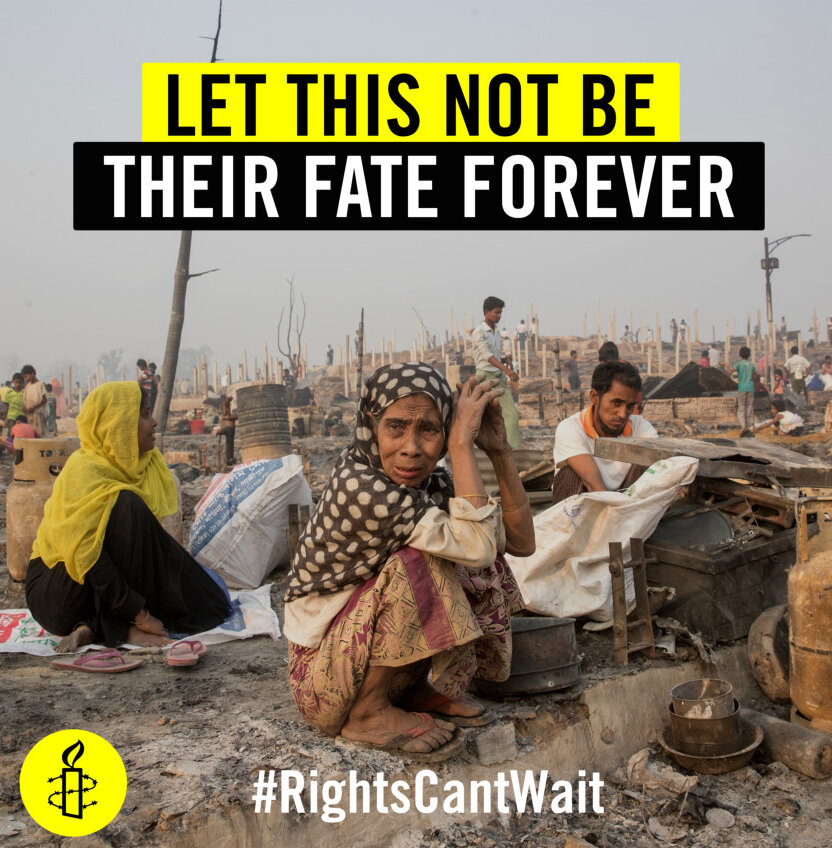
| This is the worst fire in terms of damage and loss of lives in the camps since the Rohingya influx in 2017, but it is not the first. The frequency of fire incidents in the camps prompts immediate, thorough, independent and impartial investigation.
The Bangladeshi authorities have moved thousands of Rohingya men, women and children to Bhashan Char, a remote island, that is off-limits to journalists, rights defenders, or anyone without prior permission. It has not had a comprehensive technical and protection assessment by the UN.
Refugees interviewed said that they moved to the island more out of compulsion. Authorities plan to relocate 100,000 Rohingya refugees to the island.
|
| |
|
|
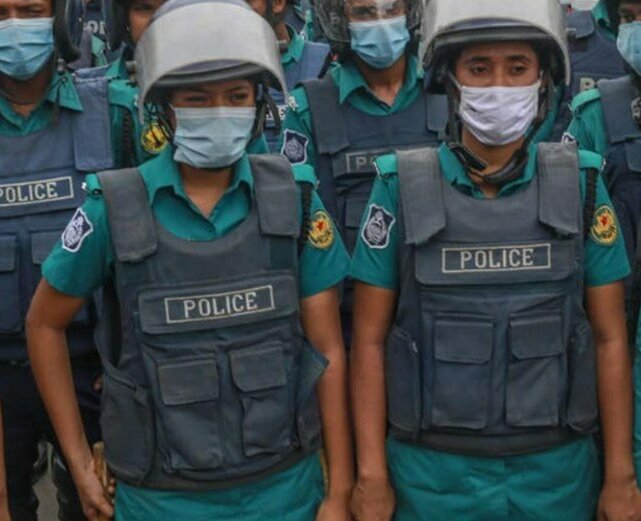 | Authorities must conduct prompt, thorough, impartial, and independent investigations into the death of protesters and respect people‘s right to peaceful assembly The Bangladeshi authorities must conduct investigations into the death of at least 14 protesters across the country between 26 & 28 March, and respect the right to freedom of peaceful assembly. Eleven human rights organisations in a joint statement called on the international community to urge Bangladeshi authorities to put an end to the practice of torturing and forcibly disappearing opposition activists.
Between 20 & 26 March, police and members of ruling party Awami League attacked a series of protests across the country organised by different political and civil society groups, beat up and injured hundreds of largely peaceful protesters, according to local media reports.
|
| |
|
|
|
|
Universal Periodic Review Amnesty‘s submission for the Universal Periodic Review (UPR) of Nepal in January/February 2021 says Nepal has made limited progress since its previous UPR in 2015. Important commitments to enact or reform legislation to protect human rights and address persistent discrimination have not been implemented and many laws and draft laws, such as the Information Technology Bill, Nepal Special Service Bill, Media Council Bill, Mass Media Bill fall short of international human rights standards. Existing laws that offer protection have been poorly implemented, including laws on migrant workers‘ rights, Dalit rights, women‘s rights and provisions relating to torture in the Penal Code.
Concerns are raised about a series of laws that aim to limit the rights to freedom of expression assembly
and association and to provide impunity for past crimes and human rights violations. There has been persistent failure to independently and effectively investigate allegations of excessive use of force and extrajudicial executions, continued reports of torture and other ill-treatment, failure to address gender and caste-based discriminations and violence, to effectively protect migrant workers from abuses and forced evictions and limited progress on ensuring the right to food. There is also reference to specific human rights challenges in the context of the Covid-19 pandemic.

|
| |
|
|
Human Rights Commission‘s integrity in jeopardy There has been widespread criticism of a recently endorsed executive ordinance that amends the law governing the Constitutional Council, which makes appointments to the Judiciary, the National Human Rights Commission (NHRC), and other constitutional bodies, including the Election Commission. The changes, which were made without proper consultation or parliamentary approval, make appointments more easily controlled by a small number of individuals, potentially undermining the independence of these bodies and their global standing. The NHRC, in particular, is currently held in high regard internationally. In a joint statement issued by Amnesty International, Human Rights Watch and the International Commission of Jurists, Dinushika Dissanayake, Deputy South Asia Director of Amnesty
International, said “The doubts over the independence and integrity of the NHRC and other commissions will endanger the protection of human rights in Nepal. The government must immediately reverse these appointments and start a new process in consultation with the civil society and rights holders in Nepal.”

|
| |
|
|
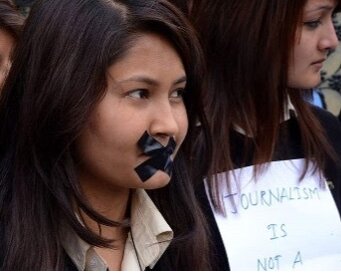

| Information Technology Bill Threatens Freedom of Expression In a country that, not so long ago, was envied across the region for its openness to different opinions and criticism of authorities, it is sad to see that Nepal‘s proposed IT Bill will empower the government to censor online/ social media content, punishing offenders with up to 5 years in prison and fines equivalent to around $13,000. It has provoked widespread criticism from civil society and calls for amendment to bring it into line with international standards and ensure it is not used to criminalise peaceful exercise of the right to freedom of expression.
In addition, the Ministry of Communication and Information Technology has prepared a draft of a new social media directive to regulate the use and registration of social media, indicating that the government plans to bestow
unrestrained authority to the Department of Information Technology to regulate social media, its operators, and users. Amnesty is preparing a response.
|
| |
|
|
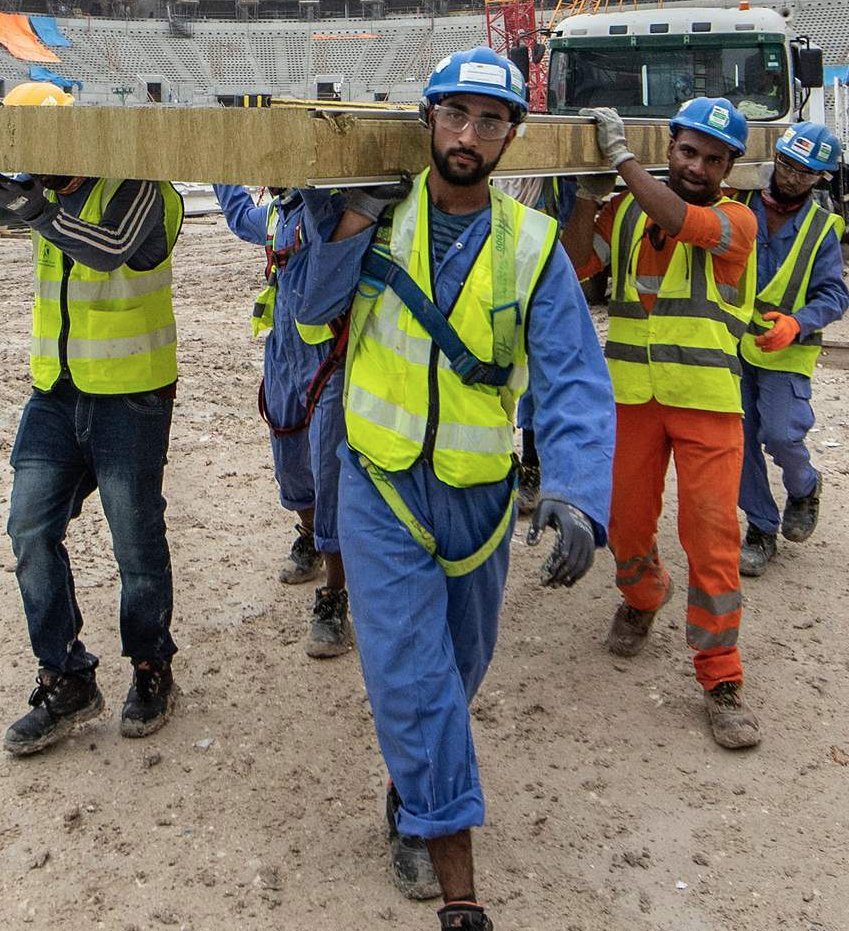

| Is Qatar planning a U-turn on migrant labour reforms? There are worrying developments in Qatar‘s Shura Council, which recently issued a series of recommendation aimed at stripping migrant workers of their newly-found rights. This includes removing the right of migrant workers to change jobs during their contract; limiting the number of times they can change jobs during their stay in Qatar to three; restricting the number of workers in a company that can change jobs to 15% unless agreed otherwise by the company; and increasing the percentage of workers who require exit permits to leave Qatar from 5% to 10%. It is unclear how the Qatar government will respond to these recommendations, but if accepted they will reverse much of the progress Qatar has achieved to date, and revive the notorious kafala system that severely limits the rights of
migrant workers.
Please read the Blog by the Amnesty Researcher.
|
| |
|
|
|
|
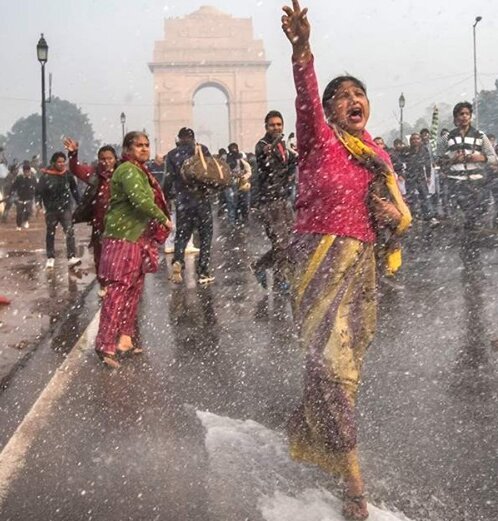 | Amnesty India Office Shutdown The office remains closed and Amnesty is continuing to work globally to release of Amnesty India‘s assets so that the office can function again. Rajat Khosla, Senior Director for Research, Advocacy and Policy at Amnesty International, spoke to the European Parliament in February expressing Amnesty‘s grave concerns about the increasing clampdown by the Indian authorities on human rights. He noted that since 2014, civil society has come under increasing pressure and human rights defenders face harassment, intimidation, and arrest and detention, often without charge or trial. The state uses anti-terror and foreign funding laws [the Unlawful Activities Prevention Act (UAPA) and the Foreign Contribution Regulation Act (FCRA)] to muzzle dissent, targeting students, activists, journalists,
lawyers and peaceful protestors who are critical of the government, while granting impunity to the police and army.
In 2018 the conviction rate under the UAPA was 27%, with 93% of cases still pending. Slow investigative processes and stringent bail provisions ensure that people are locked up for years. The FCRA is often used by the authorities to obstruct the work of non-profit organisations attempting to address corruption and legitimate national security concerns. Being broadly worded makes it open to misuse against organisations working on social issues. Rajat Khosla urged to European Parliament to take stronger action to address the deteriorating HR situation in India, including engaging with the Indian authorities, making recommendations and working with personal contacts.
|
| |
|
|
G7 & PM's visit to India Concerns have been expressed by a number of NGOs, including Amnesty, about the invitation extended to India to join the G7 gathering in June as a member of the “democratic 10” invitees. This is particularly relevant as one of the priority themes of the meeting is open societies!
In April, the UK PM, Boris Johnson will be visiting India, providing an opportunity to stand up for human rights, but will he take it? AIUK is writing to PM Boris Johnson to urge him to raise these issues.
’The UK needs to go beyond fine phrases and take a principled stand‘ - says Kate Allen in a Press Release:

|
| |
|
|
 | Farmers protests Amnesty International recently called for the immediate and unconditional release of those arrested solely for peacefully exercising their rights to freedom of expression and assembly in the farmers‘ protest in New Delhi. At least eight leading journalists and politicians have been charged with sedition after reporting on the protest.
However, the Indian Foreign Secretary summoned the British High Commissioner to convey his government‘s strong opposition to the “unwarranted and tendentious discussion on agricultural reforms in India in the British Parliament”. He said this represented a gross interference in the politics of another democratic country and advised that British MPs should refrain from “practising vote bank politics by misrepresenting events, especially in
relation to another fellow democracy”.
|
| |
|
|
 | When farmers and labourers marched to Delhi late last year, they were met with water cannon, tear gas, batons, and attacks from badge-less police officers. The farmers are angry because one of the reform bills removes the Minimum Support Price, a guarantee that the government pays farmers to protect them from harsh drops in crop prices. The Modi administration said the new laws give farmers the freedom to do business with whoever they want. However, farmers argue that selling directly to large corporations will drive the prices of their produce down so low that they will not be able to afford to run their farms anymore. In fact, the decrease in crop prices over recent years has left more than half of India‘s farmers in debt, and is being blamed for India‘s high rate of farmer
suicide.
Although the government has temporarily suspended implementation of the reforms pending consultation with the farmers and legal experts, farmers fear this is just a trick and the laws will be quietly passed if they stop their protests.
|
| |
|
|
 | Jatar Singh Johal A reply to an Amnesty activist from John Glen, MP, said that the UK Foreign Secretary raised Jatar Singh Johal‘s case with the Indian Minister of External Affairs, Subrahmanyam Jaishankar, on 15 December 2020. Lord Ahmad, the Minister of State for South Asia and the Commonwealth, also raised it with the Indian High Commissioner and with the Indian Foreign Secretary, Harsh Vardhan Shringla. Lord Ahmad has also met with Mr Johal's family on a number of occasions. He stated that Foreign, Commonwealth and Development Office staff have been working to provide assistance to Mr Johal and his family and that representations are, and will continue to be, regularly made on behalf of Mr Johal to the Government of India.
|
| |
|
|
|
|
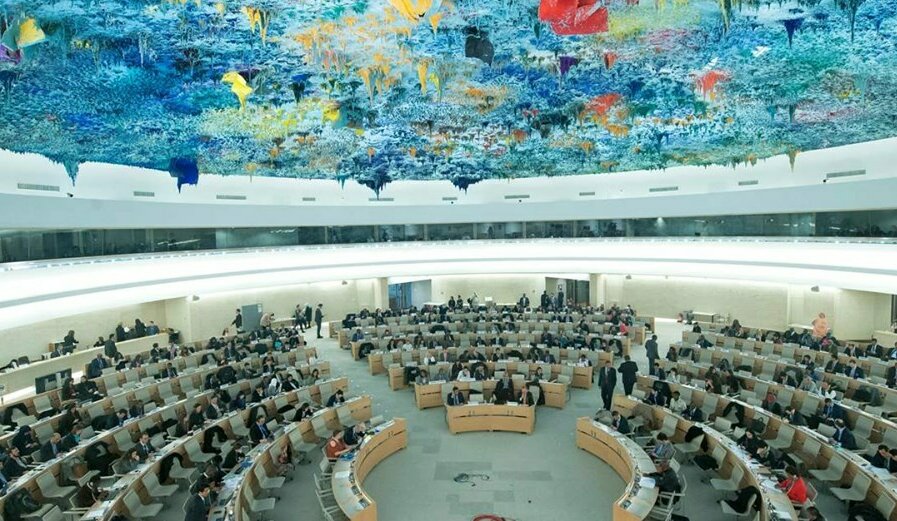

| Landmark UN resolution marks crucial turning point on justice and accountability A new UN resolution on Sri Lanka is an important step forward and offers renewed hope of long-awaited justice for victims of the country‘s 30-year civil conflict, said Amnesty International, following its adoption by the Human Rights Council (UNHRC) today.
The resolution not only ramps up international monitoring and scrutiny of the human rights situation in Sri Lanka, but also mandates the UN human rights office to collect, consolidate and preserve evidence for future prosecutions and make recommendations to the international community on steps they can make to deliver on justice and accountability.
“This is a significant move by the Human Rights Council, which signals a shift in approach by the international community. Years of support
and encouragement to Sri Lanka to pursue justice at the national level achieved nothing. This resolution should send a clear message to perpetrators of past and current crimes that they cannot continue to act with impunity,” said Hilary Power, Amnesty International‘s representative to the UN in Geneva.
Please see the Amnesty report.
|
| |
|
|
Please send us Feedback We welcome feedback on this newsletter and on the actions that you are taking.
Thank you from the South Asia team:
Cherry Bird (India, Nepal, Bhutan); Ayesha Mehta (Pakistan); Jerry Allen (Bangladesh, Sri Lanka), Nigina Istanakzai Zarifi (Afghanistan & Maldives).
|
| |
|
| |
|
|
|
|
|
|
|
|
| |
|